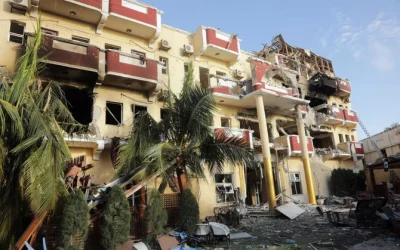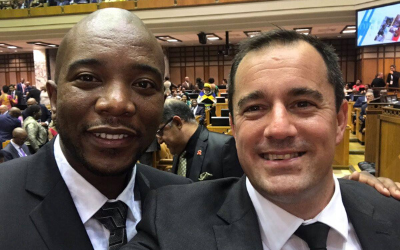By Arik Diamant
It's the wee hours of the morning, still dark outside. A fighter force comes out of nowhere to kidnap a soldier. After hours of careful movement, the force reaches its target, and the ambush is on! In seconds, the soldier finds himself looking down the barrel of a rifle.
A smash in the face with the butt of the gun and the soldier falls to the ground, bleeding. The kidnappers pick him up, quickly tie his hands and blindfold him, and disappear into the night. This might be the end of the kidnapping, but the nightmare has just begun. The soldier's mother collapses, his father prays. His commanding officers promise to do everything they can to get him back, his comrades swear revenge. An entire nation is up-in-arms, writing in pain and worry.
Nobody knows how the soldier is: Is he hurt? Do his captors give him even a minimum of human decency, or are they torturing him to death by trampling his honour? The worst sort of suffering is not knowing. Will he come home? And if so, when? And in what condition? Can anyone remain apathetic in the light of such drama?
Israeli terror
This description, you'll be surprised to know, has nothing to do with the kidnapping of Gilad Shalit. It is the story of an arrest I carried out as an IDF soldier, in the Nablus casbah, about 10 years ago. The "soldier" was a 17-year-old boy, and we kidnapped him because he knew "someone" who had done "something."
We brought him tied up, with a burlap sac over his head, to a Shin Bet interrogation centre known as "Scream Hill" (at the time we thought it was funny). There, the prisoner was beaten, violently shaken and sleep deprived for weeks or months. Who knows?
No one wrote about it in the paper. European diplomats were not called to help him. After all, there was nothing out of the ordinary about the kidnapping of this Palestinian kid. Over the 40 years of occupation we have kidnapped thousands of people, exactly like Gilad Shalit was captured: Threatened by a gun, beaten mercilessly, with no judge or jury, or witnesses, and without providing the family with any information about the captive.
When the Palestinians do this, we call it "terror." When we do it, we work overtime to whitewash the atrocity.
Suspects?
Some people will say: The IDF doesn't "just" kidnap. These people are "suspects." There is no more perverse lie than this. In all the years I served, I reached one simple conclusion: What makes a "suspect"? Who, exactly suspects him, and of what?
Who has the right to sentence a 17-year-old to kidnapping, torture and possible death? A 26-year-old Shin Bet interrogator? A 46-year-old one? Do these people have any higher education, apart from the ability to interrogate? What are his considerations? If all these "suspects" are so guilty, why not bring them to trial?
Anyone who believes that despite the lack of transparency, the IDF and Shin Bet to their best to minimize violations of human rights is naïve, if not brainwashed. One need only read the testimonies of soldiers who have carried out administrative detentions to be convinced of the depth of the immorality of our actions in the territories.
To this very day, there are hundreds of prisoners rotting in Shin Bet prisons and dungeons, people who have never been –and never will be – tried. And Israelis are silently resolved to this phenomenon.
Israeli responsibility
The day Gilad Shalit was kidnapped I rode in a taxi. The driver told me we must go into Gaza, start shooting people one-by-one, until someone breaks and returns the hostage. It isn't clear that such an operation would bring Gilad back alive.
Instead of getting dragged into terrorist responses, as Palestinian society has done, we should release some of the soldiers and civilians we have kidnapped. This is appropriate, right, and could bring about an air of reconciliation in the territories. Hell, if this is what will bring Gilad home safe-and-sound, we have a responsibility to him to do it.
Arik Diamant is an IDF reservist and the head of the Courage to Refuse organization.




![[LISTEN] Judge Siraj Desai Speaks to Radio Islam about #SONA2020 & the MJC’s 75th Anniversary](https://archives.radioislam.org.za/wp-content/uploads/2020/06/Podcast-final.png)


0 Comments